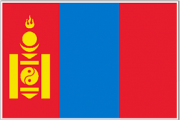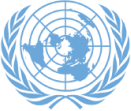HIGH-LEVEL THEMATIC DEBATE ON
"UN@70 - HUMAN RIGHTS AT THE CENTRE OF THE GLOBAL AGENDA"
12-13 July 2016
New York
STATEMENT BY H.E.MR.SUKHBOLD SUKHEE,
AMBASSADOR PLENIPOTENTIARY AND EXTRAORDINARY,
PERMANENT REPRESENTATIVE OF MONGOLIA TO THE UNITED NATIONS
Mr. President,
At the outset, I would like to express my delegation's sincere gratitude to the President of the General Assembly for convening this important high level thematic debate on the UN's role in the area of human rights. Indeed, human rights are one of the three pillars of the UN and its significance has been relentlessly growing over the past 70 years.
We acknowledge importance of the Secretary General's Human Rights Up Front Initiative to prevent or respond to large scale violations of human rights of international humanitarian law and the outcomes of the major United Nations conferences and summits in the economic, social and related fields which duly provide necessary human rights linkages.
Mr. President,
Mongolia strongly supports and is fully committed to implement the 2030 Agenda for Sustainable Development. As the agenda is well grounded in international human rights laws, it offers critical opportunities to further advance the realization of human rights for all people everywhere without discrimination. Meantime, we underline importance of consistency and sufficiency of financial and budgetary matters for implementing international law and fulfilling human rights commitments.
The Government of Mongolia highly values the role of the Human Rights Council and its human rights mechanisms and instruments such as the Universal Periodic Review and the Council's works which helped the international community to increase accountability and respond to human rights emergencies. This year, Mongolia has started to carry out its first time membership at the Human Rights Council. We appreciate this membership as an opportunity to contribute to improving human rights situation in our world.
Mr. President,
Since 1990 Mongolia has been regarded as model of democracy in the region. The essence of that is the Government's commitment to prioritize the good governance, the rule of law and access to justice as essential tools through which democracy and human rights are realized and protected.
In 2012, Mongolia started comprehensive legal reform in order to ensure full protection of human rights, including the rights to justice and due process of law. The ultimate goal of the reform is to improve not only the procedures and efficiency of legal processes but also the quality of justice so that human rights are deeply anchored in every law, state policy and court decision.
The legal reform culminated in the comprehensive revision of the Criminal Code and the Administrative Code last year. Mongolia abolished death penalty in law with the adoption of the revised Criminal Code. This was preceded by the ratification in 2012 of the Second Optional Protocol to the International Covenant on Civil and Political Rights, aiming at the abolition of death penalty, and the President’s moratorium on death penalty.
With the revised Criminal Code, we have also brought definition of torture in conformity with Article 1 of the Convention against Torture. Furthermore, the revised Criminal Code criminalized domestic violence, marital rape, discrimination including against LGBT persons, forced child labor and corporal punishment against children, and decriminalizes acts of libel and defamation.
Mr. President,
Protection of the vulnerable parts of the population was further reinforced in February 2016 with the adoption of a Law on the Rights of Persons with Disabilities, a Law on the Rights of the Child and a Law on Protection of the Child, which all have incorporated provisions of the respective international treaties where Mongolia is a state party to. Earlier in 2012, Mongolia adopted a Law to Fight Trafficking in Persons.
More recently, on May 13, 2016 the Parliament of Mongolia adopted the drafts of the revised Criminal Procedure Code and the Law on Law Enforcement, which are vital in enabling access to justice for and protecting the rights of all citizens.
Mr.President,
Along the lines of the Agenda 2030, this year Mongolia launched its 2030 Sustainable Development Vision.
In 15 years, Mongolia aspires to be a middle-income, multi-sector stable economy and a society which would preserve ecological balance and have stable and democratic governance. In order to achieve this vision, we need to end poverty in all its forms, reduce income inequality and most importantly build professional, stable and participative governance, free of corruption.
We are confident that if all countries make such efforts, the global community will be able to make changes and to reach its universal, transformative, comprehensive and inclusive Sustainable Development Agenda by 2030.
Thank you for the attention.


